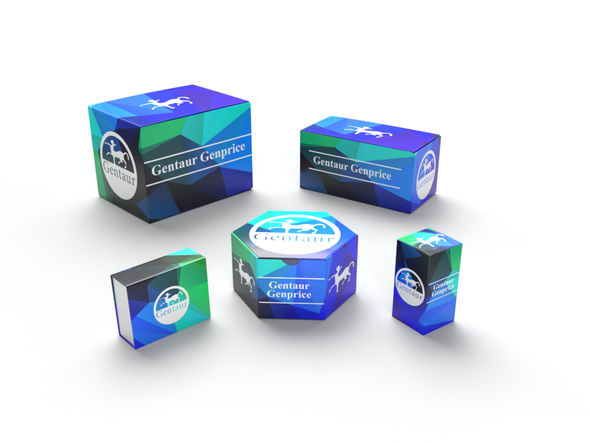BW
Trk A (Phospho-Tyr496) polyclonal Antibody | BS65110
- SKU:
- BW-BS65110
- Availability:
- Usually ships in 5 working days
Description
Trk A (Phospho-Tyr496) polyclonal Antibody | BS65110 | Gentaur UK, US & Europe Distribution
Host: Rabbit
Reactivity: Human,Mouse,Rat
Application: WB,IF/ICC,ELISA
Application Range: Immunofluorescence: 1/200 - 1/1000. ELISA: 1/5000. Not yet tested in other applications.
Background: neurotrophic receptor tyrosine kinase 1 (NTRK1) Homo sapiens This gene encodes a member of the neurotrophic tyrosine kinase receptor (NTKR) family. This kinase is a membrane-bound receptor that, upon neurotrophin binding, phosphorylates itself and members of the MAPK pathway. The presence of this kinase leads to cell differentiation and may play a role in specifying sensory neuron subtypes. Mutations in this gene have been associated with congenital insensitivity to pain, anhidrosis, self-mutilating behavior, mental retardation and cancer. Alternate transcriptional splice variants of this gene have been found, but only three have been characterized to date. [provided by RefSeq, Jul 2008],
Storage & Stability: Store at 4°C short term. Aliquot and store at -20°C long term. Avoid freeze-thaw cycles.
Specificity: Phospho-Trk A (Y496) Polyclonal Antibody detects endogenous levels of Trk A protein only when phosphorylated at Y496.
Molecular Weight: /
Note: For research use only, not for use in diagnostic procedure.
Alternative Names: NTRK1; MTC; TRK; TRKA; High affinity nerve growth factor receptor; Neurotrophic tyrosine kinase receptor type 1; TRK1-transforming tyrosine kinase protein; Tropomyosin-related kinase A; Tyrosine kinase receptor; Tyrosine kinase receptor A;
Immunogen: The antiserum was produced against synthesized peptide derived from human Trk A around the phosphorylation site of Tyr496. AA range:471-520
Conjugate: Unconjugated
Modification: Phosphorylation
Purification & Purity: The Antibody was affinity-purified from rabbit antiserum by affinity-chromatography using epitope-specific immunogen.
Pathway:










